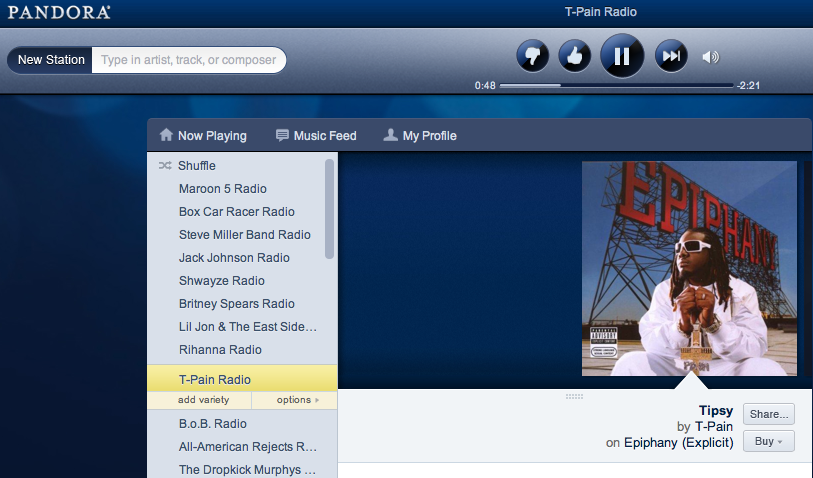The Tampa Bay Business Journal recently ranked USF 23 out of 25 universities in the country for illegal downloading. The list was compiled by the Motion Picture Association of America and included 447 copyright infringements.
USF is the only Florida school on the list that was drafted at the request of the U.S. House of Representatives Committee on the Judiciary.
In March, Orlando Rep. Ric Keller introduced a bill allowing colleges to use federal funds in an effort to reduce student piracy.
Last year, The New York Times reported recorded music sales decreased about 10 percent in 2009. The report came from the International Federation of the Phonographic Industry, which noted the 30 percent fall of music sales worldwide from 2004 to 2009.
USF Tampa’s newspaper, The Oracle, reported in 2007 that the Recording Industry Association of America sent USF 124 pre-litigation letters to students charging them with illegally downloading through the university’s network. About half of those students were sued by the RIAA.
Students who got caught found themselves in hot water because of the Internet-use agreement and acceptable-use policies required for Internet access on the USF network. Students can choose not to comply, but are then unable to use the network.
Regarding music downloading, the copyrighted material portion of the agreement outlines what constitutes piracy: “Within the Internet culture of unlicensed use, theft of intellectual property is rampant. Unauthorized Internet music archive sites (using multiple formats, such as .wav files, or MP3 files) provide illegal sound recordings online to anyone with a personal computer.
Music can be downloaded and played indefinitely, without authorization of or compensation to the artists. Other music pirates use the Internet to peddle illegal CDs.”
Trying to cope with the mass access to music piracy through sites like The Pirate Bay and Demonoid, USF joined forces with Ruckus Network, Inc. The software program gives students free access to USF’s network to download songs from a library of 3 million tracks.
Students could only listen to the songs from Ruckus on campus and couldn’t download them to disc or play them anywhere else without paying. Ruckus didn’t gain much traction with students and eventually disappeared. Now, Campus Computing uses a program called Red Lambda, which monitors file sharing on the campus network.
Try downloading once and the policy outlines what will happen—essentially a slap on the wrist: “If you download from a P2P website through the USF campus network, your Internet connection will be disabled and you will receive an email from the Incident Response Team regarding USF Network Terms of Service.”
BitTorrenting, a peer-to-peer sharing software, has stirred much debated because technically it’s a sharing program and not a direct illegal download. The software takes miniscule bits of information from all over to form a single file. As far as USF’s acceptable use policy goes, BitTorrenting falls under P2P and is therefore a violation.
Abuse the USF network and chances are it’ll be more than a slap on the wrist. The Crow’s Nest attempted to speak to one student who had settled out of court (to the tune of several thousand dollars) for illegal downloading but wasn’t allowed to speak about the incident as part of the settlement agreement.
The university’s file sharing website states that although Ruckus is no longer available, students can still legally access sites like Pandora, Slacker Radio and Last FM.



